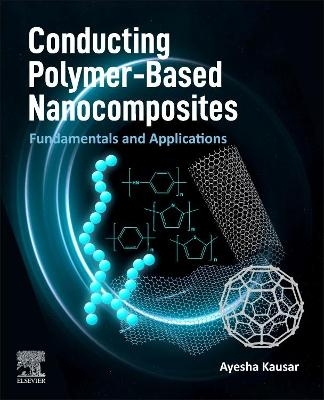
Conducting Polymer-Based Nanocomposites
Elsevier Science Publishing Co Inc (Verlag)
978-0-12-822463-2 (ISBN)
This book begins with a widespread impression of state-of-the-art knowledge in indispensable features and processing of conducting polymer-based nanocomposites. It then discusses essential categories of conducting polymer-based nanocomposites such as polyaniline, polypyrrole, polythiophene, and derived nanomaterials. Subsequent sections of this book are related to the potential impact of conducting polymer-based nanocomposites in various technical fields. Significant application areas have been identified for anti-corrosion, EMI shielding, sensing, and energy device relevance. Finally, the book covers predictable challenges and future opportunities in the field of conjugated nanocomposites.
Ayesha Kausar currently works for the National Centre for Physics in Islamabad, Pakistan. She was previously affiliated with Quaid-i-Azam University and the National University of Sciences and Technology, both in Islamabad, Pakistan. She obtained her PhD from Quaid-i-Azam University and the Korea Advanced Institute of Science and Technology, Daejeon, South Korea. Dr. Kausar’s current research interests include the design, fabrication, characterization, and exploration of structure-property relationships and potential prospects of nanocomposites, polymeric nanocomposites, polymeric composites, polymeric nanoparticles, polymer dots, nanocarbon materials (graphene and derivatives, carbon nanotube, nano-diamond, carbon nano-onion, carbon nano-coil, carbon nanobelt, carbon nano-disk, carbon dot, and other nanocarbons), hybrid materials, eco-friendly materials, nanocomposite nanofibers, and nanofoam architectures. Consideration of morphological, mechanical, thermal, electrical, anticorrosion, barrier, flame retardant, radiation shielding, biomedical, and other essential materials properties for aerospace, automotive, fuel cell membranes, Li-ion battery electrodes, electronics, sensors, solar cells, water treatment, gas separation, textiles, energy production and storage devices, biomaterials, and other technical relevance are among her notable research concerns.
1. Prominence of conjugated polymers 2. Conducting polymer-based nanocomposites: Structuration, compatibilizing effect, conductivity, and physical properties 3. Essence of nanoparticles and functional nanofillers for conducting polymers 4. Design and development of polyaniline/nanocarbon nanocomposites 5. Perspectives on nanocomposite with polypyrrole and nanoparticles 6. Emerging hybrids derived from polythiophene and graphene 7. Nanocomposite nanofibers of conducting polymers: Multifunctional nanostructured materials 8. Anti-corrosion coatings derived from conducting polymeric nanocomposites 9. Electromagnetic interference shielding effectiveness of polymer nanocomposites 10. Effect of interaction between conjugated polymers and nanofillers on sensing properties 11. Versatile materials for energy devices and systems
| Erscheinungsdatum | 04.05.2021 |
|---|---|
| Sprache | englisch |
| Maße | 191 x 235 mm |
| Gewicht | 630 g |
| Themenwelt | Naturwissenschaften ► Chemie ► Physikalische Chemie |
| Technik ► Maschinenbau | |
| ISBN-10 | 0-12-822463-0 / 0128224630 |
| ISBN-13 | 978-0-12-822463-2 / 9780128224632 |
| Zustand | Neuware |
| Informationen gemäß Produktsicherheitsverordnung (GPSR) | |
| Haben Sie eine Frage zum Produkt? |
aus dem Bereich


